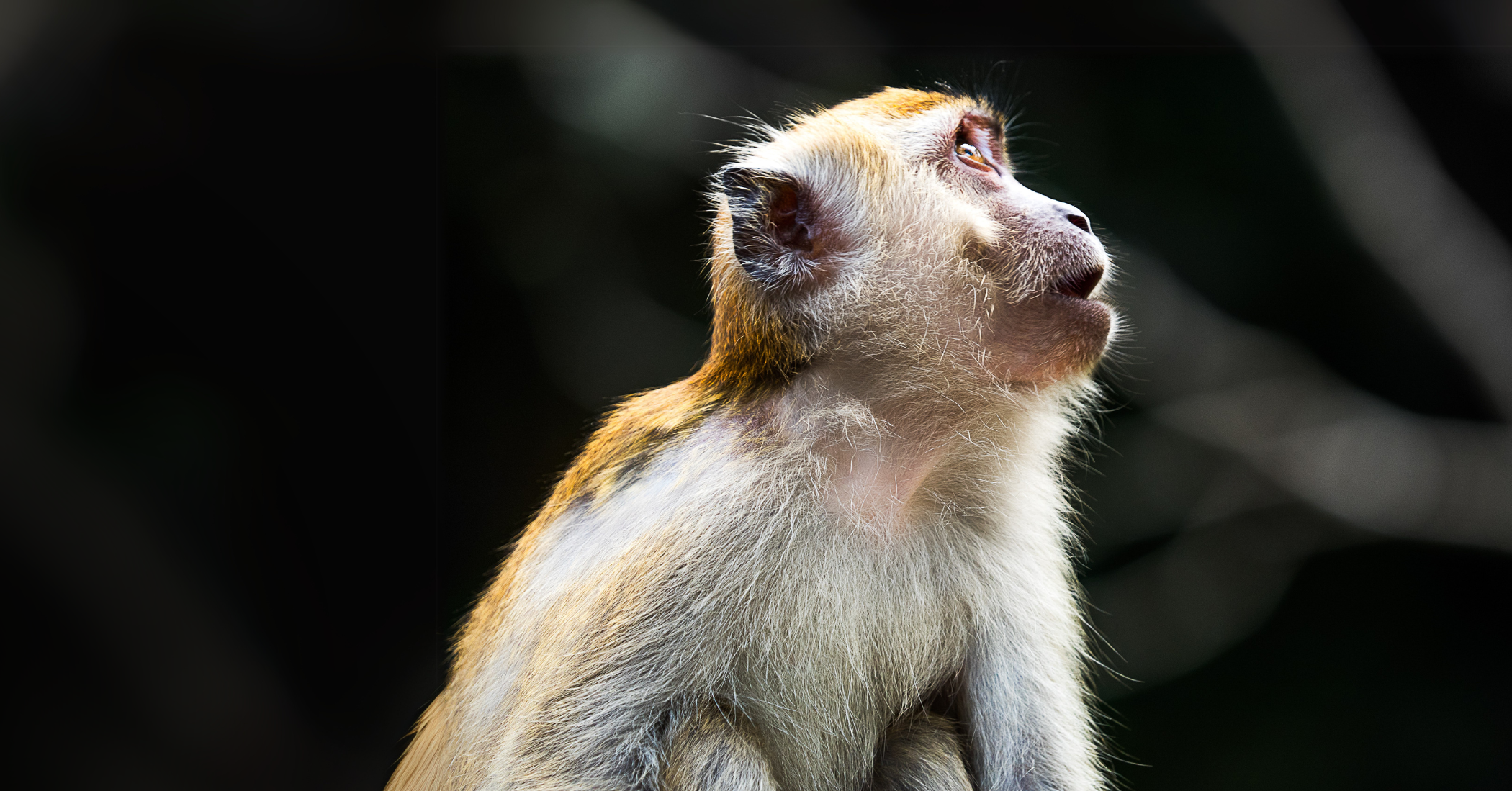
43 Monkeys Escape Hell Only to Be Dragged Back One by One
As you almost certainly have heard, 43 nonhuman primates “saw a rare chance at freedom and took it”, escaping from Alpha Genesis’s South Carolina animal breeding and research facility on November 6, 2024.
The basics, as recounted by myriad news outlets, are as follows:
- Alpha Genesis “breeds monkeys to sell to medical and other researchers” worldwide, primarily for use in biomedical research, and conducts animal research itself.
- The monkeys escaped the facility after a staff member failed to secure up to two doors.
- The monkeys are all “very young”, female, rhesus macaques “weighing just 6 to 7 lbs”. (Rhesus macaques are among the most exploited nonhuman primates on the planet, including for animal research. In the words of one researcher, “[e]very large research university in the United States probably has some rhesus macaques hidden somewhere in the basements of its medical school,’….”)
- As of the most recent report, 32 of the escapees have been recaptured (and reincarcerated).

While prolific, much of the news coverage has largely ignored two key components at play. First, the fates from which these nonhuman primates fled.
Let it be widely known that:
- Alpha Genesis’s South Carolina compound, which was reported to confine 6,701 nonhuman primates as of May 2024, is referred to by locals as “‘the monkey farm’”.
- All of the monkeys are owned by the National Institutes of Health (“NIH”), which employed Alpha Genesis’s CEO as a “staff scientist” prior to his joining (or, as he claims, founding) the breeding and animal research facility.
- Alpha Genesis has received “millions of taxpayer dollars in funding” – “$110 million in federal funding since 2008”, including a U.S. Department of Health and Human Services (i.e., NIH) award of $19 million in 2024.
- Alpha Genesis holds “a federal contract to run a colony of 3,500 monkeys on Morgan Island off the coast of South Carolina, also known as Monkey Island”; and all of the escaped monkeys had been transported to Alpha Genesis from Morgan Island, which acts “as a kind of reservoir of lab monkeys for the US government”.
- At least 109 monkeys have escaped Alpha Genesis in twelve separate incidents over the last decade, including in 2022, 2016, and 2014. (Several of these attempts are featured in scholarly works as telling examples of animal resistance to human exploitation.)
- Alpha Genesis’s federal records document many harrowing occurrences and conditions, including:
- The death of an infant monkey who became entangled in gauze.
- The deaths of monkeys whose fingers became “entrapped in structures inside their enclosures” (and who were found dead with their fingers still stuck).
- The death of a monkey from dehydration after he was left without water for six days.
- The deaths of many monkeys from physical trauma that resulted from being placed in the wrong enclosures/with the wrong social groups by staff and from staff failing to keep separate social groups apart.
- The death of a monkey from “internal injuries” after he escaped “from an outdoor chain link enclosure” and was “darted”.
- The death of a monkey “inside an item of enrichment equipment that had broken allowing the animal to enter but not escape”.
- The death of a monkey who “grabbed a dislodged cable”.
- The death of a monkey who “grabbed a partially buried extension cord”.
- The death of a monkey “from asphyxiation after becoming entangled in part of a suspended torn sunshade”.
- The deaths of monkeys from neglect, “cold stress”, and hypothermia.
- Filth and debris, molded food, and unsafe living spaces.
- Alpha Genesis boasts of AAALAC accreditation.
This — coupled with incarcerative confinement, physical torture, and psychological suffering — is what the South Carolina 43 were running from, which brings us to the second key component being overlooked: escape as an undeniable act of resistance.
Far from resulting from “purely human error”, as Alpha Genesis’s CEO has suggested, the monkeys’ escapes depict the intentional, willful, and brave actions of autonomous beings who long to be free:
“Despite their vast exploitation in today’s globalized capitalist economy, animals’ agency persists. Captive and free-living animals have resisted for as long as humans have oppressed them. While countless animals have struggled for liberation and justice for centuries . . . whether or not they succeed, their efforts have rarely been recorded in history….”
We are grateful that the efforts of these 43 resistors have found public attention.
And we join with Angela Fernandez and Justin Marceau in hoping that this event “will inspire conversations about the right of at least some animals to liberate themselves from exploitation and harm at human hands.”
Spread the truth about Alpha Genesis now by sharing this story on Facebook or X.